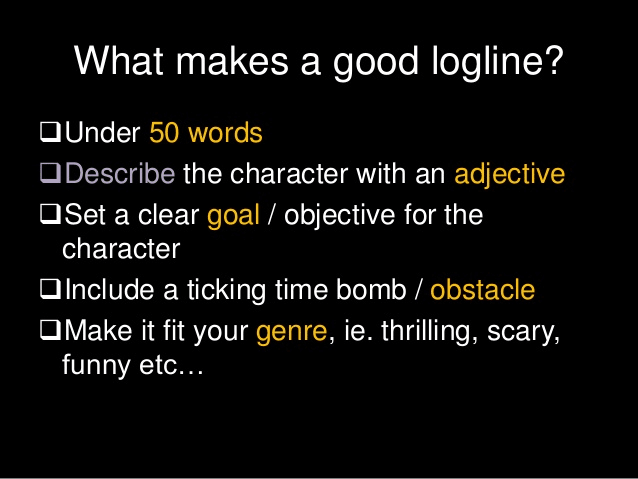

An emotional hook to grab potential viewers’/readers’/producers’/publishers’ interest.The big studios would own hundreds of scripts, and the studio head would keep a log book that recorded concise summaries (or “loglines”) that described each script in the studio’s possession.’ Term etymology via LoglineĪ logline is a useful type of story summary because it gives potential readers, publishers or TV/film producers: The creators of Logline App explain the term’s origins: You could describe the hook-driven summaries of bestsellers Hawes lists here as loglines. Many use it to describe single-sentence book summaries, too. What are loglines, why is this type of summary helpful, and how can you write better ones? Read these logline definitions, tips and examples: Defining loglinesĪ logline is ‘a synopsis of a script or screenplay’ ( Collins Dictionary). A word you might come across from time to time is ‘logline’.

Example: Freedom? Individuality? Responsibility? (Intro to Existentialism).There are many technical writing terms to learn as you become a writer.Example: Question your questions? (Intro to Philosophy).(Shannon Kelly, Visual Rhetoric and Document Design). Example: Design across various modalities, contexts, and software, while collaborating on a team and interfacing with community partners.
#WRITE A LOGLINE HOW TO#

Loglines require there to be a story-arc for your course that doesn’t begin and end with content and delivering content. It is essentially the ultimate short story.

Not only does it need to be concise in description, it must also capture the feel and action of the plot as well. A group of unlikely friends set out to find him, without knowing where he is or even if he’s alive.Ī good logline can be really hard to write. Here’s a Finding Nemo logline: A young fish is captured from his home coral. Whereas a logline describes the narrative structure (plot and purpose) of the movie.įor example, here’s a Finding Nemo tagline: There are 3.7 trillion fish in the ocean. What is the difference between a logline and a tagline?Ī tagline is more of a slogan or advertisement for a movie. If you’re interested in more examples, check out “101 Loglines” here. Get OutĪ mother personally challenges the local authorities to solve her daughter’s murder when they fail to catch the culprit. The MatrixĪ young African-American visits his white girlfriend’s parents for the weekend, where his simmering uneasiness about their reception of him eventually reaches a boiling point. A computer hacker learns from mysterious rebels about the true nature of his reality and his role in the war against its controllers.


 0 kommentar(er)
0 kommentar(er)
